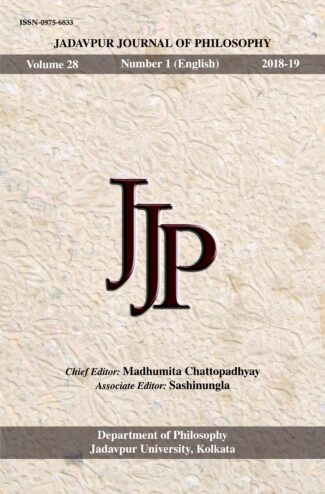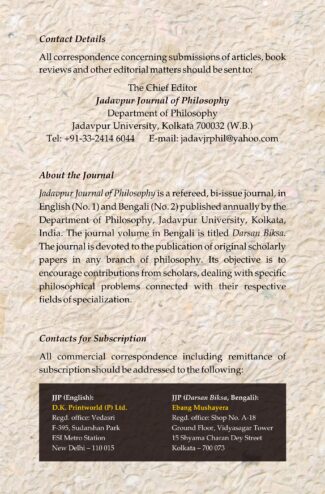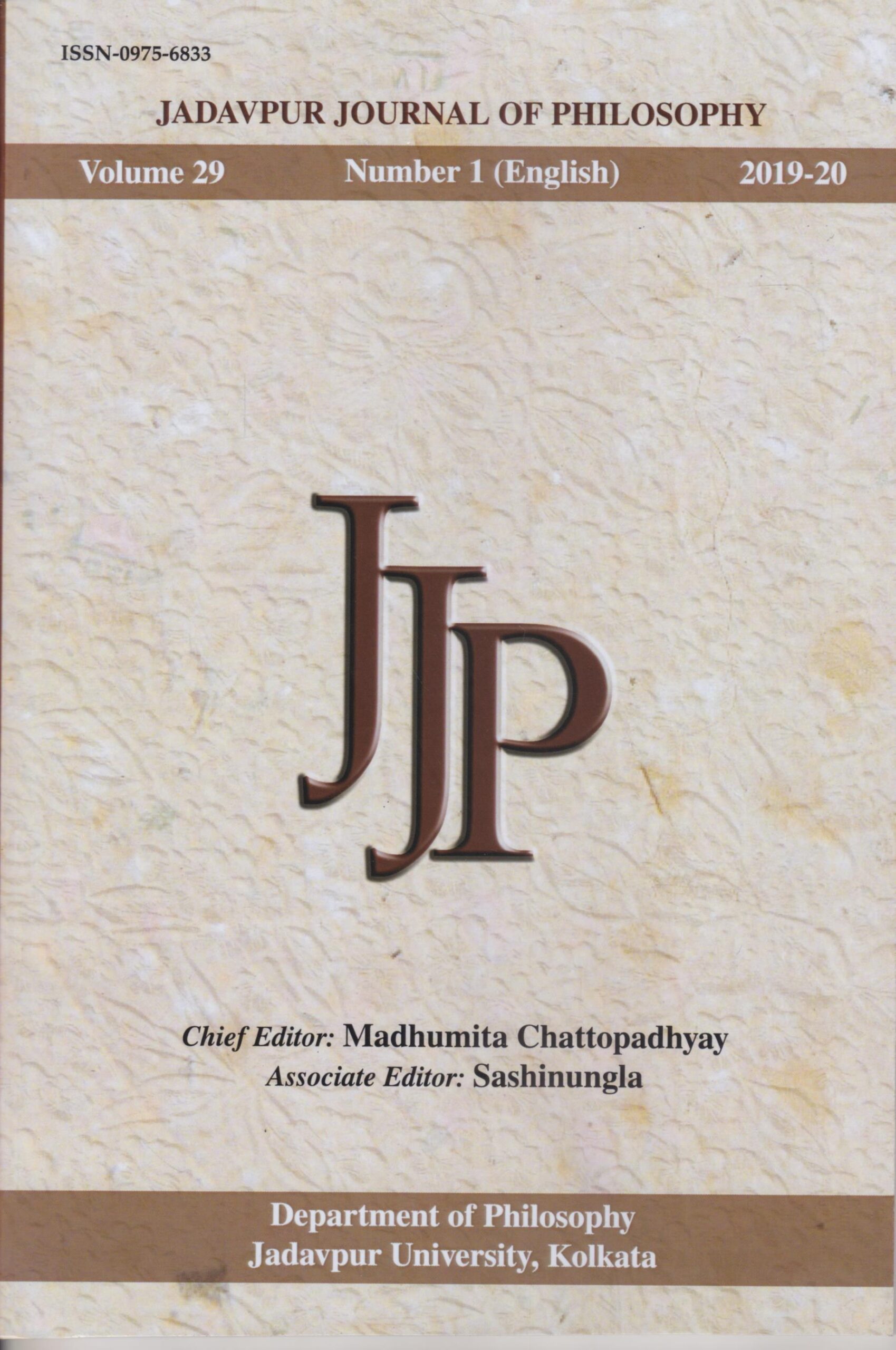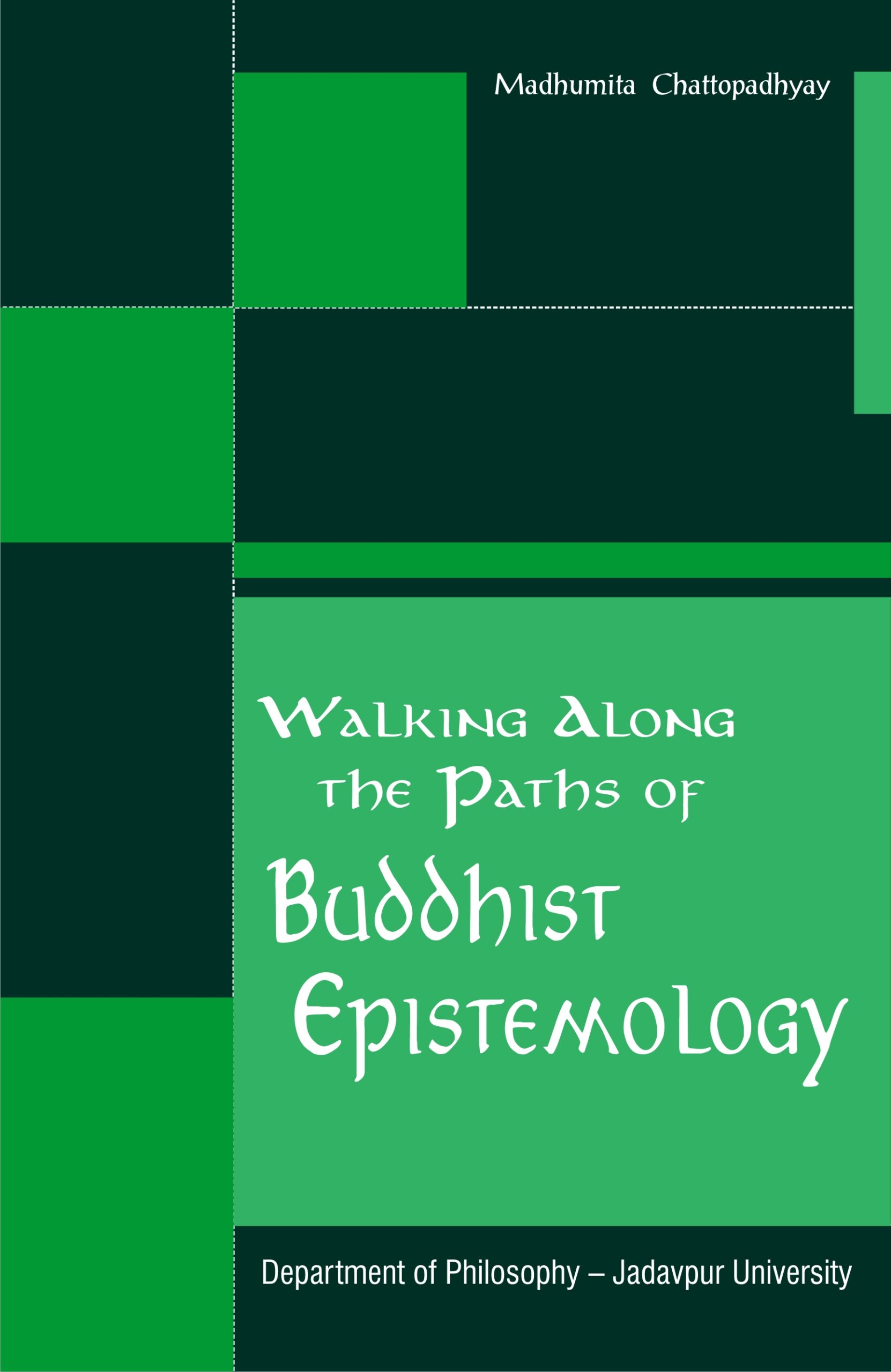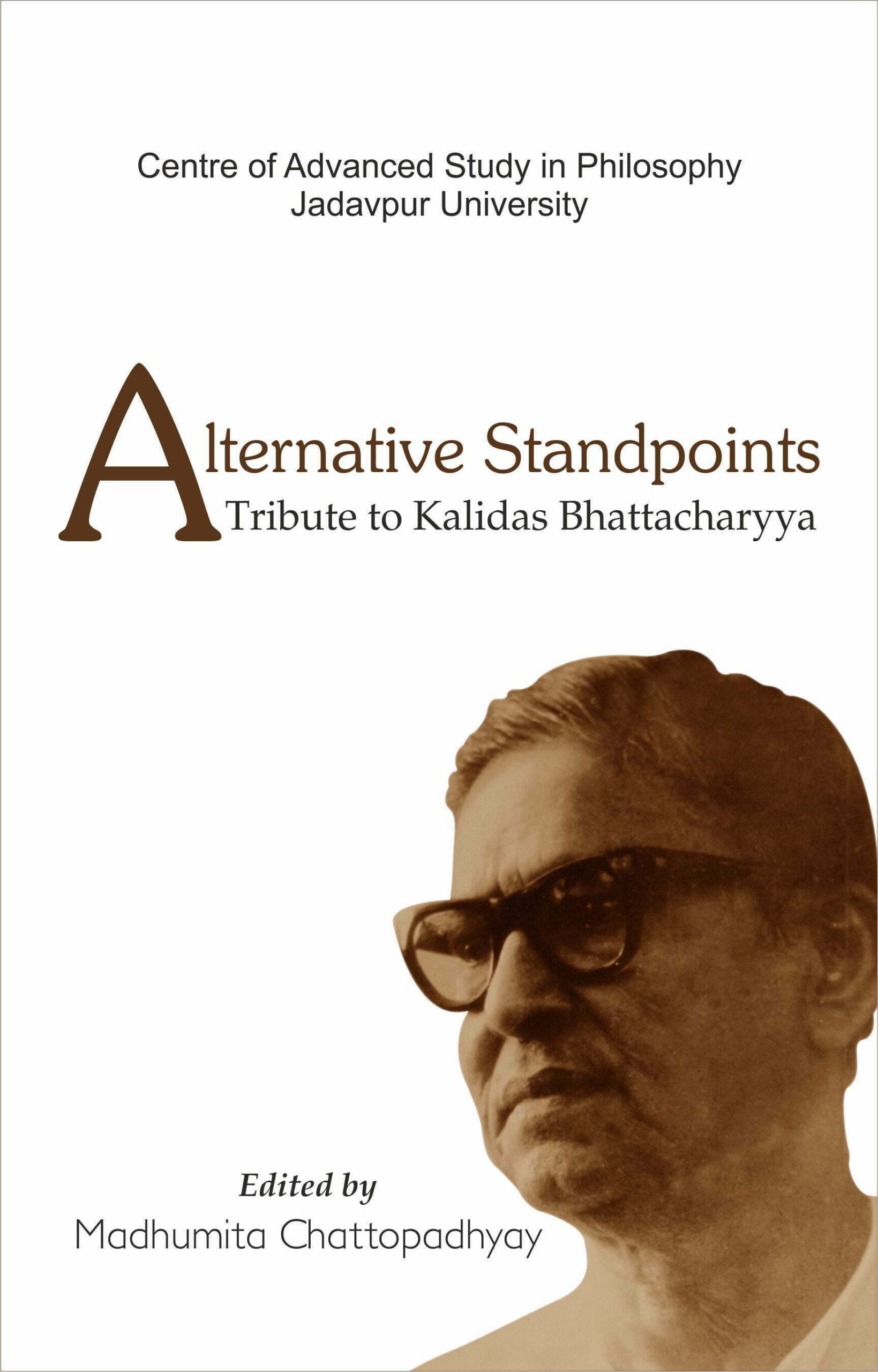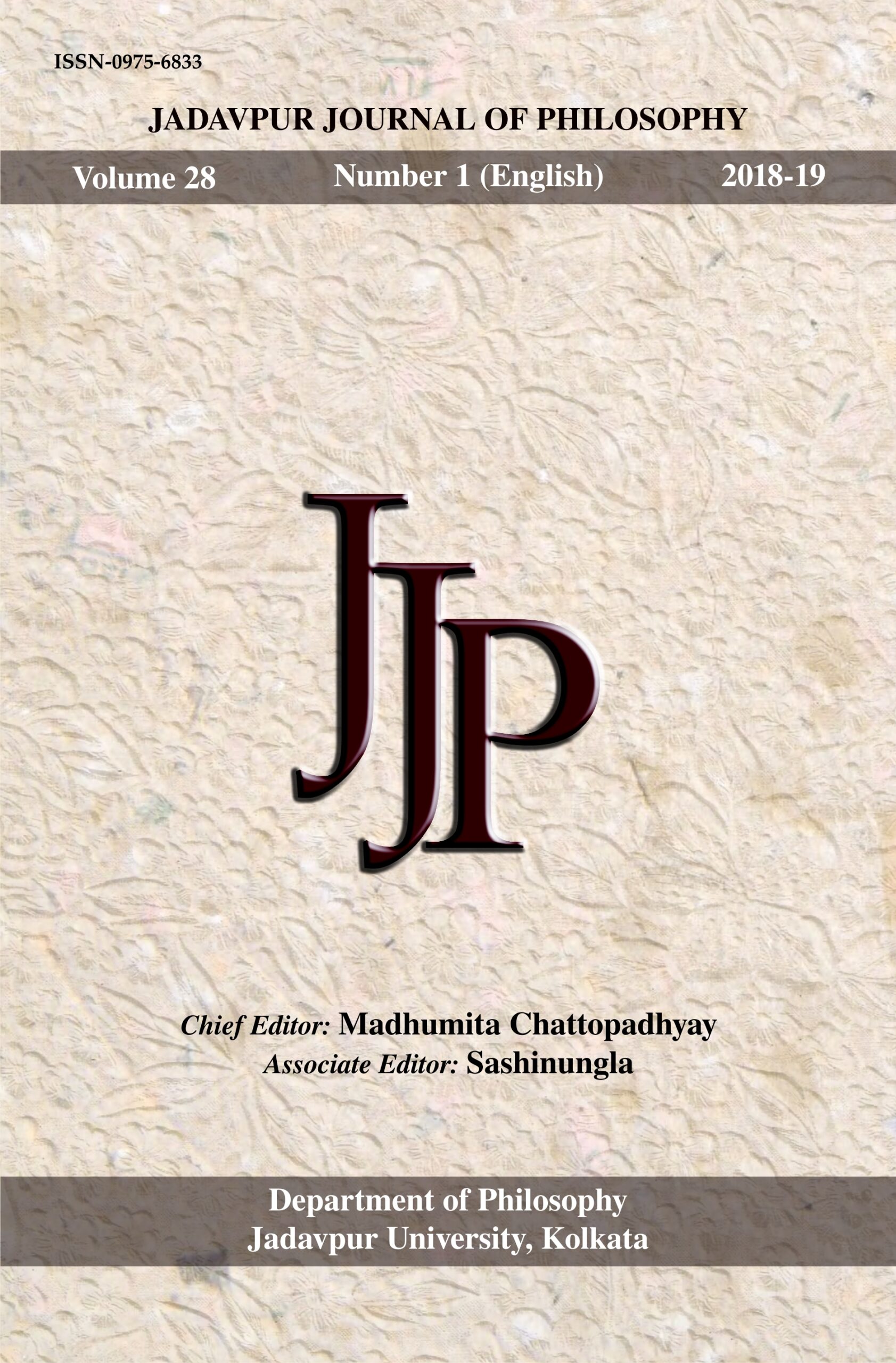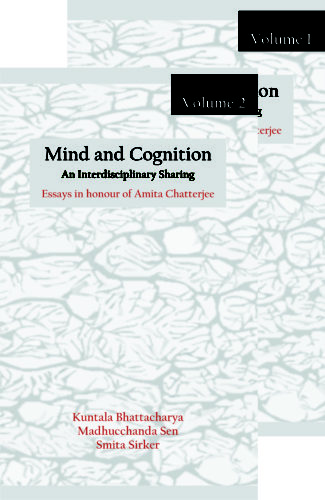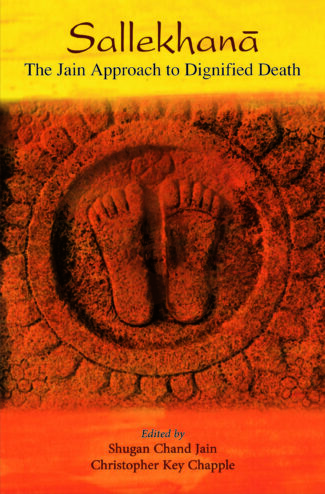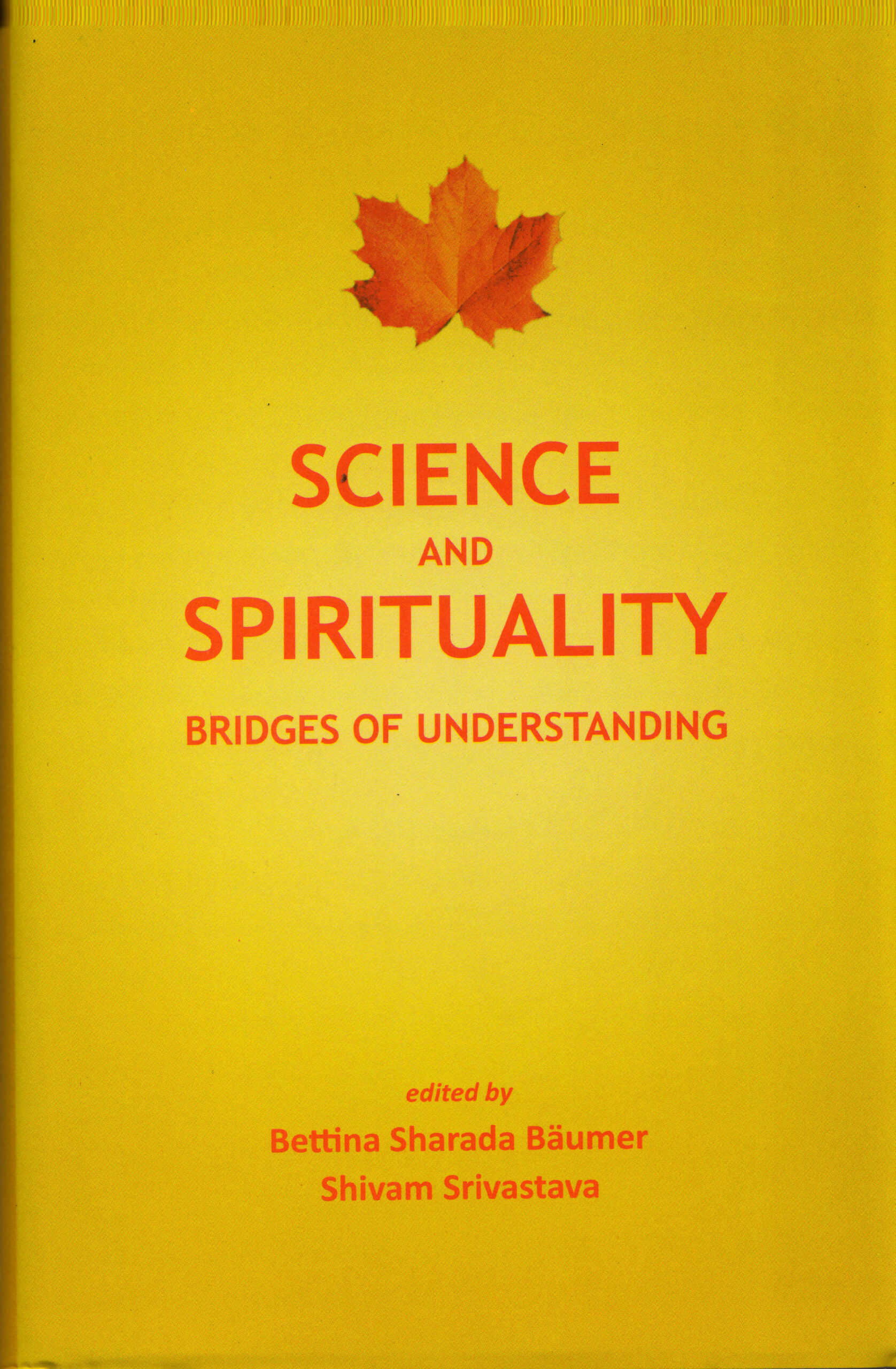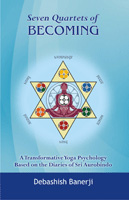

Jadavpur Journal of ...
Jadavpur Journal of Philosophy
Vol. 28; Number 1 (English); 2018-19 by: Madhumita ChattopadhyayJadavpur Journal of Philosophy is a refereed, bi-issue journal, in English (No. 1) and Bengali (No. 2) published annually by the Department of Philosophy, Jadavpur University, Kolkata, India. The journal volume in Bengali is titled Darsan Biksa. The journal is devoted to the publication of original scholarly papers in any branch of philosophy. Its objective is to encourage contributions from scholars, dealing with specific philosophical problems connected with their respective fields of specialization.
₹300.00 Original price was: ₹300.00.₹270.00Current price is: ₹270.00.
ISBN: 9788100000891
Year Of Publication: 2020
Edition: 1st
Pages : iv, 147
Language : English
Binding : Paperback
Publisher: Jadavpur University
Size: 23
Weight: 282
This book proposes to take up the question of Universal Causation to examine thoroughly as how far it is right to regard Brahman as the Universal Cause and how far strakra himself lent his support to each of the inter-conflicting schools of Vednta. This book should, therefore, benefit all who are devoted to the philosophic teachings of Advaita Vednta and its preceptors.
Talking about What There Is Not
— Imdadul Islam Molla
A Semantic Reading of Quantum Gravity
— Enakshi Ray Mitra
Theories of Sentence Meaning: Some Common Concerns
— Ruba Bandyopadhyay
Role of Buddhi in the Bhagavadgītā
— Binod Kumar Agarwala
The Cases for Hānādi Buddhi: Moment Examinations
— Mainak Pal
Objectual vs Substitutional Interpretations of Quantifiers
— Madhusree Chatterjee
List of Contributors
- Sale!Mind and Cognition An Interdisciplinary Sharing by: Kuntala Bhattacharya, Smita Sirker, Madhucchanda Sen,
₹4,000.00Original price was: ₹4,000.00.₹3,600.00Current price is: ₹3,600.00.“Knowing one’s tradition is important; but only when tradition is not presented as fossilised but as continuous with our present-day living. In most places we do not make enough effort to show the link between the classical philosophical thoughts and the contemporary world view. We need to show that we can still meaningfully interact with the classical philosophical systems”, writes Amita Chatterjee in her seminal essay “In Search of Counterpoints”. This volume is dedicated in her honour. “Knowing one’s tradition is important; but only when tradition is not presented as fossilised but as continuous with our present-day living. In most places we do not make enough effort to show the link between the classical philosophical thoughts and the contemporary world view. We need to show that we can still meaningfully interact with the classical philosophical systems”, writes Amita Chatterjee in her seminal essay “In Search of Counterpoints”. This volume is dedicated in her honour. Chatterjee belongs to a genre of philosophers, who have as part of their cultural heritage, like Raghunath Siromani and Immanuel Kant. Chatterjee, in addition to breaking cultural boundaries, desired to break boundaries that have kept professional disciplines apart. She deeply believes that there are certain basic questions that are questions not for any specific discipline. These questions, she thinks, could not be answered by remaining within one single discipline. It is no surprise that she was the founder of the first Cognitive Science Centre in India. Responding to her multifaceted academic talent, forty academics from diverse disciplines and from all over the world have contributed papers to this volume. The major areas of Chatterjee’s interest that feature in this volume are: (i) Fusion Philosophy, (ii) Mind and Cognition, (iii) Mind and Perception, (iv) Mind and Language, (v) Logic and Vagueness, (vi) Logic, (vii) Indian Philosophy, and (viii) Philosophy, Society and Popular Culture. Chatterjee’s intellectual autobiography and her responses to each of the papers are parts of this volume.
ISBN 9788124609514 (vol. 1)
ISBN 9788124609521 (vol. 2)
- Sale!Sallekhana by: Shugan Chand Jain, Christopher Key Chapple,
₹1,200.00Original price was: ₹1,200.00.₹1,080.00Current price is: ₹1,080.00.Jainism regards life to be eternal. Recognizing that the soul can never die, but merely takes a new body, a careful tradition welcoming death through intentional fasting developed more than two thousand years ago. A legal challenge Rajasthan was put forward in 2013, suggesting that this practice is harmful and coercive and targets women in particular. For a short while Sallekhanā, which means the “thinning of existence,” was declared illegal. In response to this controversy, three conferences were convened by the International School for Jain Studies to explore the legal, religious, and medical aspects of this practice. Experts discussed the long history of the practice, attested to in epigraphs throughout India; the ways in which fasting to death has become an acceptable practice in the Western world; and contemporary instances of its observance in India. This volume presents an interdisciplinary approach to thinking about the end of life, from biomedical, historical, religious, and legal perspectives.
- Sale!Vada in Theory and Practice by: Radhavallabh Tripathi
₹1,300.00Original price was: ₹1,300.00.₹1,170.00Current price is: ₹1,170.00.Vada, meaning debates, dialogues, discussions, was the quintessential of Indian spirit, enabling and promoting the growth of different philosophical and knowledge systems of India. It percolated deep into our mindset and enriched the moral, ethical, religious and sociocultural edifice of anything that was essentially Indian in nature. As continuation of Anvikshiki from the bc era, vada helped thrive Indian traditional knowledge systems. It subsists on diversity and its tradition envisages pluralism.
Most of our Sanskrit works, covering a wide gamut of knowledge systems, are structured in the techniques of debate. This reality applies not only to the philosophical writings, but to Indian medical systems (Ayurveda), Arthashastra of Kautilya and Kamasutra of Vatsyayana as well. Even great epics like Ramayana and Mahabharata are no exceptions.
Vada culture involved verbal duals, attacks and even violence of speech, and all major religious systems — old or modern — were parties to it. This book also elucidates how vata was vital and critical for the growth of our socio-political fabrics. It shows how some of the major conflicts in philosophical systems were centred around karma, jnana, choice between violence and non-violence, pravritti and nivritti. It also presents the manifestations of vada on a vast canvas during the nineteenth and twentieth centuries. Modern spiritual and religious gurus like Ramana Maharshi, J. Krishnamurti and Vinoba Bhave were men of dialogues. Our scholars have applied the varied techniques of vada against the philosophical and scientific systems of the West to prove them correct.
This collector’s issue should enthrall a wide audience of philosophers, scholars and believers in Indian knowledge systems. - Sale!Science and Spirituality by: Bettina Sharada Bäumer
₹1,000.00Original price was: ₹1,000.00.₹900.00Current price is: ₹900.00.A dialogue between science and spirituality is a necessity in our times where both, differences and mutual enrichment of the two great fields of human approach to reality, are taking place. This volume addresses this need from the perspective of different areas of science and spiritual traditions. The starting point is the intention of the founder of the IIAS, Dr S. Radhakrishnan, who saw that “both the practice of science and experience of spirituality are intimately related to being human”. Although much thought has gone into their relationship, the present volume intends to broaden and deepen the possibility of a harmonious integration, necessary to overcome the present-day crisis of humanity.
From the side of science, the contributors come from the fields of physics, plant biology, neuroscience, psychology, ecology and philosophy of science; and from the side of spirituality, following traditions and spiritual masters are represented: PÀtaðjala Yoga, Trika Œaivism of Kashmir, VedÀnta, Buddhism, Christianity, Theosophy, and Rabindranath Tagore, Swami Vivekananda and J. Krishnamurti. The deliberations included topics such as Awareness in plants, Neuroplasticity and Habit, appropriate use of terms such as “Consciousness” and “Energy” in different contexts, clarifying several issues concerning the on-going dialogue. The contributing scholars have built “bridges of understanding”, thus encouraging the reader to proceed further in this quest. - Sale!Seven Quartets of Becoming by: Debashish Banerji
₹1,200.00Original price was: ₹1,200.00.₹1,080.00Current price is: ₹1,080.00.Groomed in a modern academic tradition and post-Enlightenment ideals of creative freedom and social critique, Sri Aurobindo (1872-1950) turned his attention to yoga and the limits of consciousness in its ability to relate to and transform nature. In the process, he documented scrupulously his experiments and experiences based on a synergistic existential framework of practice.
Debashish Banerji correlates the approach to yoga Sri Aurobindo took in his diaries with his later writings, to derive a description of human subjectivity and its powers. Banerji constellates Sri Aurobindo’s approach with transpersonal psychology and contemporary lineages of phenomenology and ontology, to develop a transformative yoga psychology redefining the boundaries and possibilities of the human and opening up lines of self-practice towards a wholeness of being and becoming.
Both scholar and Yogi, Aurobindo (1872-1950) carefully documented the unfolding of spiritual consciousness starting shortly after his deep revelatory experiences while in prison in 1908. His observations were recently published in a two volume set, The Record of Yoga. Debashish Banerji has analyzed this work and offers a detailed, clear, systematic and inspirational interpretation of how the Yoga of Sri Aurobindo may be understood and practiced.
Þ From the `Foreword’ of
Prof. Christopher Key Chapple
Doshi Professor of Indic and Comparative Theology Loyola Marymount University, Los Angeles, (USA)


